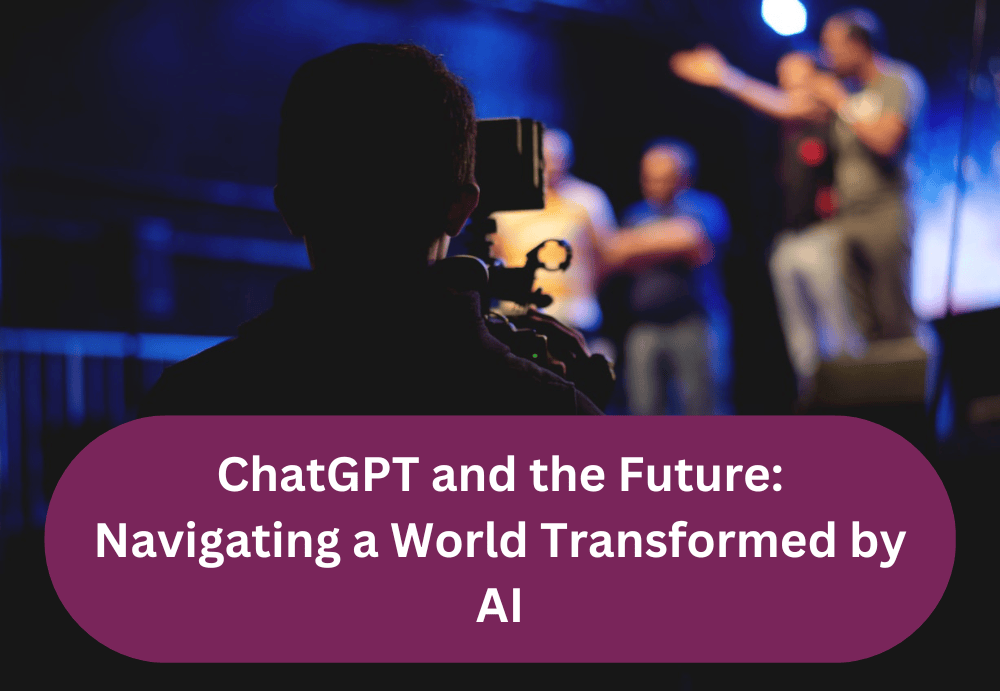In the rapidly evolving landscape of technology, artificial intelligence (AI) has emerged as a game-changer, with ChatGPT by OpenAI at the forefront of this revolution. As a state-of-the-art language model, ChatGPT has demonstrated remarkable capabilities in understanding and generating human-like text, reshaping industries and everyday life. This article explores the multifaceted impact of ChatGPT on the future, outlining both the opportunities and challenges it presents.
Revolutionizing Communication and Information Access
ChatGPT’s most immediate impact is in the realm of communication and information access. Its ability to understand and respond to natural language queries has transformed how people interact with technology. In the future, we can expect ChatGPT to become an integral part of personal and professional life, acting as a virtual assistant that can handle a wide range of tasks from scheduling appointments to providing research assistance. This will make information more accessible and tasks more manageable, potentially boosting productivity and creativity.
Transforming Education and Learning
In the educational sector, ChatGPT is set to revolutionize the way students learn and teachers teach. With personalized tutoring and instant feedback capabilities, it can provide students with a customized learning experience, catering to their individual needs and pace. For educators, ChatGPT can be a valuable tool for curriculum development, grading, and even in creating interactive learning materials. However, this also raises concerns about academic integrity and the need for developing critical thinking skills in an AI-assisted world.
Impact on Employment and the Job Market
One of the most debated aspects of ChatGPT’s impact is on employment and the job market. While it is likely to automate certain tasks, particularly in areas like customer service, data entry, and even some aspects of writing, this does not necessarily mean a reduction in jobs. Instead, the nature of jobs will evolve, requiring new skills such as AI literacy and the ability to work alongside AI systems. ChatGPT could also create new job opportunities in AI development, maintenance, and ethical oversight.
Enhancing Business Operations and Decision Making
Businesses stand to gain significantly from ChatGPT’s capabilities. It can enhance decision-making by providing insights derived from large volumes of data, assist in developing marketing content, and even manage customer relations by handling inquiries and feedback. The potential for improved efficiency and cost savings is substantial, but businesses must also navigate the ethical implications of using AI, including privacy concerns and the potential for AI-generated biases.
Advancing Healthcare
In healthcare, ChatGPT could play a crucial role in diagnostics, patient education, and even in therapy and counseling services. By analyzing patient data and medical literature, it can assist healthcare providers in making more informed decisions. However, the sensitivity of medical information and the need for accurate, reliable advice means that regulatory oversight will be essential.
Ethical and Societal Implications
The widespread adoption of ChatGPT brings forth significant ethical and societal implications. Issues such as privacy, data security, and the potential for misinformation and manipulation are of paramount concern. There will be a need for robust ethical frameworks and regulations to ensure that the use of ChatGPT and similar technologies aligns with societal values and norms.
Bridging Cultural and Language Barriers
ChatGPT has the potential to bridge cultural and language barriers, fostering global communication and understanding. Its translation capabilities and understanding of cultural nuances can facilitate international collaboration and cross-cultural exchanges. This could lead to a more interconnected world, but also raises concerns about cultural homogenization and the preservation of linguistic diversity.
Challenges in Regulation and Governance
Regulating AI technologies like ChatGPT poses a significant challenge. Governments and international bodies will need to collaborate to establish standards and regulations that ensure responsible use while fostering innovation. Balancing these objectives will require ongoing dialogue among policymakers, technologists, ethicists, and the public.
Preparing for the Future
To maximize the benefits and minimize the risks of ChatGPT, it is crucial for individuals, organizations, and governments to stay informed and actively engage with these technologies. Education systems will need to adapt to prepare future generations for an AI-integrated world, emphasizing skills like critical thinking, creativity, and emotional intelligence, which are beyond the current capabilities of AI.
Conclusion
ChatGPT represents a significant milestone in the evolution of AI, offering immense potential to enhance various aspects of life and work. Its impact on the future will be profound, redefining how we communicate, learn, work, and make decisions. As we navigate this AI-driven era, it is essential to approach these advancements with a balanced perspective, embracing the opportunities while vigilantly addressing the challenges.

